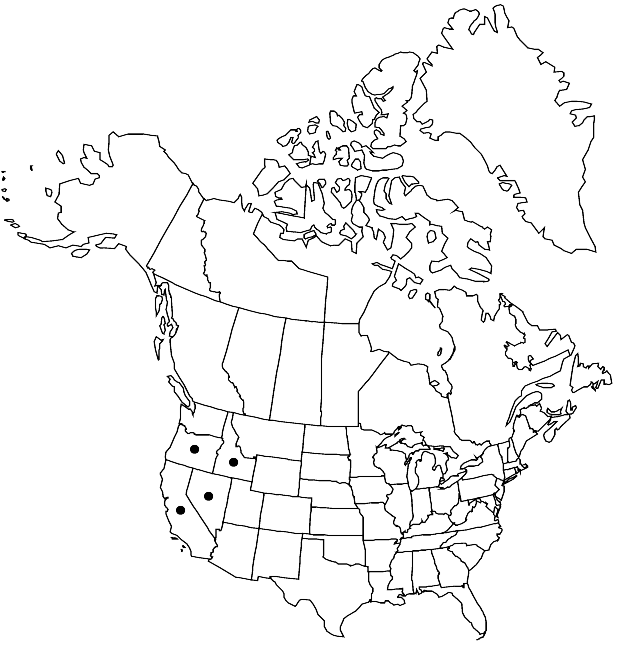Difference between revisions of "Physaria kingii subsp. kingii"
FNA>Volume Importer |
FNA>Volume Importer |
||
| Line 42: | Line 42: | ||
|publication year= | |publication year= | ||
|special status= | |special status= | ||
| − | |source xml=https://jpend@bitbucket.org/aafc-mbb/fna-data-curation.git/src/ | + | |source xml=https://jpend@bitbucket.org/aafc-mbb/fna-data-curation.git/src/f6b125a955440c0872999024f038d74684f65921/coarse_grained_fna_xml/V7/V7_1078.xml |
|tribe=Brassicaceae tribe Physarieae | |tribe=Brassicaceae tribe Physarieae | ||
|genus=Physaria | |genus=Physaria | ||
Revision as of 20:20, 24 September 2019
Plants prostrate and straggling to erect; trichomes tuberculate throughout, center low-mounded. Basal leaves: blade margins ± entire, (sometimes slightly lobed or widened at base). Racemes not secund, loose and elongated in fruit, or dense in alpine forms. Fruiting pedicels usually sigmoid. Petals yellow. Fruits slightly wider than long, apex truncate or retuse; valves pubescent inside; septum ± perforate; ovules 4(–8) per ovary; style to 7(–9) mm.
Phenology: Flowering May–Jun.
Habitat: Granitic ridges, quartz and limestone chip, stream gravels, dry slopes, calcareous soils, sagebrush hillsides, pinyon-juniper woodlands
Elevation: 1700-2200 m
Distribution

Calif., Idaho, Nev., Oreg.
Discussion
Selected References
None.
Lower Taxa
None.